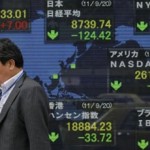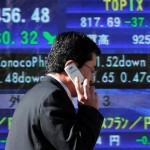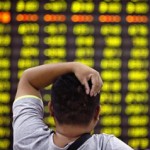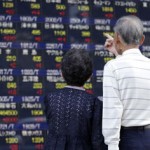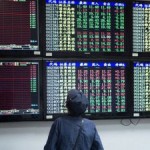China Shares Recover From Earlier Losses
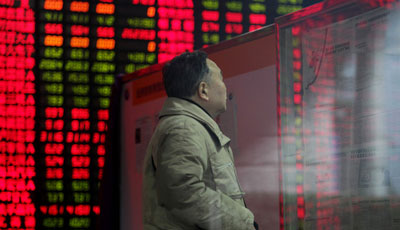
Chinese shares swung back to positive territory Thursday, as hundreds of shares resumed trading, while markets elsewhere in Asia rose after Greece approved austerity measures to secure a bailout.
The Shanghai Composite was last up 1.1% at 3847.30, having lost as much as 3% earlier in the session. The gains follow two days of losses and the index is still down more than a quarter from its seven-plus-year high.
The smaller Shenzhen Composite rallied 2.4%, while the small-cap ChiNext rose 2.7%.
In Hong Kong, the Hang Seng Index was flat while Chinese firms trading were up 0.3%.
“It takes a long time for investors to recover confidence following the slide,” said Xiao Shijun, an analyst at Guodu Securities. Four major state-owned newspapers published editorials Thursday assuring investors that the bull market will return given the government’s firm commitment to stabilizing shares.
Thursday’s rebound “would support the idea that the correction yesterday and earlier today was driven by technical factors,” such as analysis of past market prices and volume, “rather than a change in investors’ sentiment,” said Gerry Alfonso, director of trading at Shenwan Hongyuan Securities.
Meanwhile, some analysts say regulators’ increased scrutiny over gray-market margin financing has driven most of the highly leveraged funds out of the market. Some brokers estimate that the total volume of gray-market margin financing still could stand at 1 trillion yuan ($161 billion), funneled to investors through trusts and peer-to-peer lending platforms.
Another factor is that hundreds of firms returned to trade Thursday on the two mainland markets this week, after widespread suspensions. The lifted halts led to volatile trading earlier in the week, with many resumed shares popping as much as the 10% daily limit set by regulators, as investors moved money out of other holdings. Those spikes have started to abate, reducing the incentive for investors to rotate money into them.
Some 691 firms remained frozen as of 9 a.m. local time Thursday, according to FactSet, accounting for about a quarter of the number of firms listed. That’s roughly unchanged from Wednesday but down from about a half of the market at the height of the freezes.
Elsewhere, Japan’s Nikkei Stock Average was up 0.5%, Australia’s S&P ASX 200 was up 0.4%, South Korea’s Kospi was up 0.3%.
Greece got closer to securing a fresh bailout by passing austerity measures early Thursday, a prerequisite for EUR86 billion ($95 billion) in loans for the next three years from the eurozone and International Monetary Fund.
The euro gained after the deal before trickling back to around $1.0934. The Japanese yen was last at Yen123.78, flat from late Wednesday in New York.
In New Zealand, the local currency hit a five-year low of $0.6561 Thursday, from $0.6591 late in New York Wednesday, after softer-than-expected inflation data. The local currency is roughly down 16% against the U.S. dollar year to date, making it the worst performing Asia-Pacific currency this year.
Oil prices sank to a fresh three-month low Wednesday after data signaled that global glut of crude oil is being processed into a glut of refined products. Brent crude, the global benchmark, regained some ground, last at $57.68 a barrel from $57.28 late Wednesday in Asia. The nuclear deal Iran reached with six world powers also has raised concerns of increased oil exports from the country.
By Chao Deng
Chao.Deng@wsj.com
Source: MorningStar – China Shares Recover From Earlier Losses









